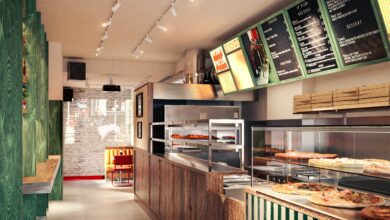Mental health: Hospitality’s next big challenge

Register to get 1 free article
Reveal the article below by registering for our email newsletter.
Want unlimited access? View Plans
Already have an account? Sign in
It’s no secret that a career in hospitality comes with its stresses: when your establishment is responsible for people’s enjoyment and something goes wrong, it can feel overwhelming. Long hours and increased alcohol consumption do not help anyone dealing with stress, and both have been blamed for the number of hospitality workers currently struggling with mental illness.
More and more hospitality workers are coming forward to talk about the stresses of the job, following the tragic and untimely death of Anthony Bourdain last year, which sent shock waves across the industry. Opening a dialogue is good, and it falls on middle managers to instigate this, but who is there for them, and how can the industry evolve to help stop day-to-day pressures spiraling out of control?
The list of worries cited by restaurant managers is extensive, but the main issues tend to fall into three categories:
Stock
Over or under ordering stock is a real concern for many restaurant managers, and as such is a major source of stress. Keeping track of how many of each menu item has been sold in an evening is not easy – and losing track makes it nigh on impossible to know when to reorder ingredients. Add into the mix the stress of tracking your costs and spend, and you can see how quickly stress can escalate.
There are a number of clever systems now available on the market, which can not only track your supplier costs, but automatically monitor if any variances effect individual recipe margins and advise you before you run out of stock, taking some of the burden off restaurant managers and making the whole process slicker.
Poor reviews
The impact of a poor review on TripAdvisor or similar can be catastrophic, with a number of businesses having to close their doors after failing to win back the trust of their customers. Furthermore, for some restaurant managers, a bad review can feel really personal.
The truth is, sometimes things go wrong despite a restaurant’s best efforts, due to basic human error. Customers are more forgiving if these issues are dealt with effectively and swiftly – and if they are made to feel like a valued customer at the end of it. Although this needs a human touch, there is now plenty of technology out there to help. Loyalty apps, for example – which reward customers who return by offering them exclusive deals, acknowledging their birthdays, or remembering their dietary requirements for example – are an effective way to encourage diners to return, even if their evening hasn’t been perfect.
No-shows
As a diner, failing to show up for a booking because something else has come up may seem innocuous, but the effect on an establishment can be really serious – particularly on ‘big’ days, such as Mother’s Day – and the resulting stress is felt most keenly by the restaurant manager or maitre’d, who have to deal with both sides of the house.
Apps which allow diners to manage, edit or cancel their bookings on their phones are the key to getting bums on seats. They allow the customer to easily change the time or date of their booking, rather than simply failing to turn up, and with enough notice, they also allow restaurant managers to fill tables that would have otherwise been left empty, ensuring the restaurant’s bottom line isn’t adversely affected.
The nature of hospitality is that it is often unpredictable, so it stands to reason that there will be bad days, as there are in most other professions. That said, in this day and age, a great number of problems can be addressed by embracing technology, and those who take advantage of platforms designed to alleviate the stress are the ones most likely to retain both their staff and protect their mental health – even during times of stress.
By John Trueman, CEO of restaurant tech firm Quadranet Systems







